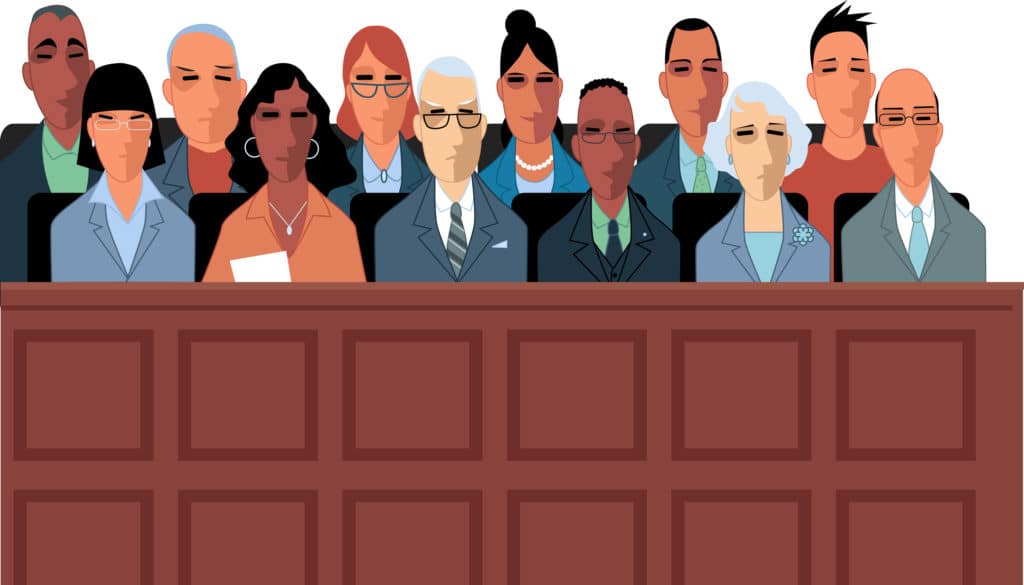How Post-Verdict Research Reveals Critical Insights for Future Jury Preparation
Trials are complicated. As all trial attorneys know, they involve many overlapping factors and variables, and as adrenaline and emotions are high, it makes it difficult to look at the big picture of what happened immediately after the verdict.
As the dust settles on a trial, attorneys begin to wonder how they could have approached the case or their communication differently. These questions are inevitable after every trial and it’s why taking advantage of post-trial jury research can provide fruitful insights.
Jury research doesn’t end with every trial; it is a continuum of compounded knowledge about human behavior and how people discern and process different types of information. And yet time has shown that the way juries think can change over time, across cultures, or under certain kinds of circumstances or trials.
The Difference Between Voir Dire and Post-Trial Interviews
Legal speech has a lot of cool Latin and French phrases like Voir Dire. This is translated as “to speak the truth.” Today it is most commonly referred to as the process that attorneys use to whittle down the large pool of potential jurors to the lucky twelve.
Plenty of research will go into the process of reducing the juror pool, but not all attorneys pay the same amount of attention to the juries after the fact and sometimes this is where a goldmine of useful information lies. So why not take advantage of the available information as a trial ends?
Even if the verdict was not in your favor—or perhaps because it wasn’t—a post-trial interview can provide you with useful insights.
Post-Trial Interviews — Where Do You Begin?
A post-trial interview is not exactly chasing down a juror in the hallway and asking them what went wrong. There are a couple of important things to note:
Know Local Rules About Jury Communication
Every court might be a little different regarding how they handle post-trial jury interviews. So knowing these local rules is essential so as not to appear unprofessional or scare jurors away. A trial court will be the one to determine when a jury interview can happen. Other courts may advise the jury that after a trial they are able to speak with the attorneys but they are not required to do so. This is why your approach can make the difference between a successful interview and a non-existent one.
Approach the Juror Cordially and Don’t Press for Immediate Answers
Jurors differ, but it is generally a good idea to avoid having rushed hallways conversations about the trial. Many jurors may be quite overwhelmed after the process and be eager to leave. Trying to get in-depth answers immediately after trial might not be the best tactic. After confirming the local court rules about post-trial interviews, approach the jurors and ask for contact information. Don’t wait too long to follow up, but contact them within 2 weeks of the trial and find a time where the juror may have relaxed and put some distance between them and the events. This is especially true for trials that went on for a long time.
Using a Trial Preparation Team to Conduct Interviews
As a trial preparation team, Jonathan Leach has conducted plenty of post-trial interviews. This research is conducted with our ASTC professional code of ethics. We, of course, work with the constraints set by the court and with the wishes or requests of jurors themselves.
The Benefits of Post-Trial Interviews
So what are some of the benefits of conducting interviews with jurors after a trial? A lot depends on what you’re looking to learn, but here are some of the core benefits that seem to be common throughout many jury interviews.
- Advantage of hindsight: As the saying goes, hindsight is 20/20. A week or two after the trial gives you time to reflect on what you want to know. So the advantage of having time to think about what you are interested in learning allows time for adequate preparation and planning for the interview.
- The chance for open-ended questions. The great advantage of these interviews is that you are able to ask jurors about more than just their opinion or thoughts on a certain aspect or topic of the trial, but you can ask them how they came to that decision.
- Talking to more than one juror. Spreading these interviews out post-trial also provides the advantage of speaking to various jurors and asking them a wide spectrum of questions. The ability to talk to several jurors provides a lot of great insights.
Get Professional Post-Trial Research and Collect Useful Information
Here, at Jonathan Leach, we conduct post-verdict jury interviews to help attorneys understand how effective their approach was or where they might spend some more time developing their technique. It helps trial lawyers learn how clear their communication was and where it can be strengthened.
Want to learn valuable insights after your next trial? Call Jonathan Leach and see how we can help!

